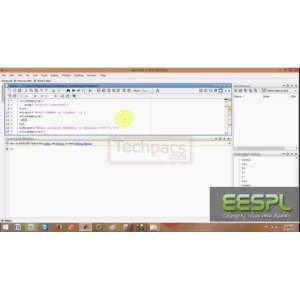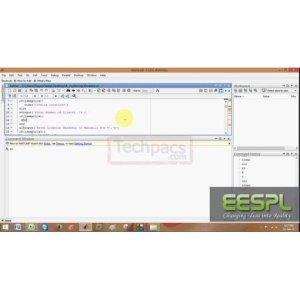Comparative Analysis of MPPT Algorithms for Maximum Power Extraction in PV Panels using MATLAB
Problem Definition
The Reference Problem Definition highlights the issue of losses incurred when a Photovoltaic (PV) panel is connected to a load, leading to a decrease in the efficiency of power extraction. This inefficiency poses a significant problem as it impacts the overall performance of the PV system and ultimately affects the amount of usable power generated. The introduction of a Maximum Power Point Tracking (MPPT) controller is essential in addressing these losses and optimizing power extraction from the PV panel. By implementing an MPPT controller, the goal is to minimize these losses and ensure that the PV system operates at its maximum efficiency, thereby maximizing the power output.
Furthermore, the limitations of the current system without an MPPT controller are evident in the inability to accurately track and adjust to changes in the maximum power point, resulting in suboptimal performance.
This lack of control over power extraction not only leads to wasted energy but also hinders the overall effectiveness and reliability of the PV system. The presence of these problems underscores the urgent need for the implementation of an MPPT controller to mitigate losses, increase efficiency, and improve the overall performance of the PV system.
Objective
The objective of the proposed work is to address the inefficiencies in power extraction from Photovoltaic (PV) panels by implementing a Maximum Power Point Tracking (MPPT) controller. This involves conducting a comparative analysis of three specific algorithms (Increment Conductance, P&O Method, and Fuzzy Logic Based MPPT Algorithm) to determine the most efficient approach to minimize energy losses when a PV panel is connected to a load. By utilizing MATLAB software to create a simulation model, the project aims to evaluate the effectiveness of each algorithm in regulating the power output of the PV panel and achieving maximum power extraction. The ultimate goal is to improve the efficiency of energy generation from PV panels and provide valuable insights into the performance of different MPPT algorithms for future research and development in renewable energy systems.
Proposed Work
The proposed work aims to address the inefficiencies in power extraction from Photovoltaic (PV) panels by implementing a Maximum Power Point Tracking (MPPT) controller. By conducting a comparative analysis of three specific algorithms, namely Increment Conductance, P&O Method, and Fuzzy Logic Based MPPT Algorithm, the project seeks to determine the most efficient approach to minimize energy losses when a PV panel is connected to a load. The use of MATLAB software provides a platform to create a model that simulates the connection of these algorithms to the PV panel through a DC to DC Boost Converter.
The rationale behind choosing these algorithms lies in their ability to regulate the power output of the PV panel by tracking and adjusting the maximum power point. By evaluating the voltage, current, and power response of each algorithm during the simulation, the project aims to identify the most effective method for achieving maximum power extraction.
Through this approach, the project not only contributes to improving the efficiency of energy generation from PV panels but also provides insights into the comparative performance of different MPPT algorithms. Ultimately, the project's findings can inform future research and development efforts in the field of renewable energy systems.
Application Area for Industry
This project's proposed solutions can be applied in various industrial sectors such as renewable energy, power generation, and electronics manufacturing. The implementation of a Maximum Power Point Tracking (MPPT) controller addresses the common challenge of losses incurred during the connection of Photovoltaic (PV) panels to loads, thereby improving the efficiency of power extraction. Industries can benefit from this technology by maximizing power output from solar panels, reducing energy costs, and enhancing overall system performance. Furthermore, the use of algorithms like Incremental Conductance, P&O Method, and Fuzzy Logic Based MPPT Algorithm in the MATLAB model enables industries to optimize power extraction based on specific requirements and environmental conditions, leading to increased productivity and sustainability.
Application Area for Academics
The proposed project can enrich academic research, education, and training by providing a practical and hands-on approach to studying Maximum Power Point Tracking (MPPT) controllers for Photovoltaic (PV) panels. By using MATLAB and implementing different algorithms, students and researchers can gain valuable insights into the efficiency of power extraction and the impact of losses in PV systems.
The relevance of this project lies in its potential applications within the field of renewable energy research. Researchers can use the code and literature provided in this project to explore innovative research methods, simulations, and data analysis techniques for improving the performance of MPPT controllers in PV systems. This project can also serve as a valuable learning tool for MTech students and PHD scholars looking to deepen their understanding of solar energy technologies and improve their research skills.
The field-specific researchers, MTech students, and PHD scholars can utilize the knowledge and resources from this project to study and optimize MPPT algorithms for different types of PV panels. By experimenting with various algorithms and analyzing the results, they can gain valuable insights into the factors affecting power extraction efficiency and develop new strategies for maximizing the performance of solar energy systems.
In the future, this project could be expanded to include more advanced algorithms, additional simulation models, and real-world data analysis techniques. This could open up new avenues for research in the field of renewable energy and provide valuable insights for improving the design and efficiency of solar power systems. By building on the foundation laid by this project, researchers and students can continue to explore innovative approaches to optimizing power extraction from PV panels and contributing to the advancement of sustainable energy technologies.
Algorithms Used
The project uses three different algorithms - Increment Conductance, P&O Method, and Fuzzy Logic Based MPPT Algorithm, to handle losses encountered during power extraction from PV panels. These algorithms are tested for their efficiency in maximizing power extraction while minimizing losses. The model is run at an input impedance of 1000 and temperature of 25, with the results compared to identify the best performing algorithm. The algorithms are implemented in MATLAB and connected with the PV panel through a DC to DC Boost Converter to optimize the power extraction process. The outcomes, such as voltage, current, and power response, are analyzed to determine the most effective algorithm for achieving Maximum Power Extraction from PV panels.
Keywords
SEO-optimized keywords: MPPT, PV panel, power extraction, MATLAB, Increment Conductance, P&O Method, Fuzzy Logic Based MPPT Algorithm, DC to DC Boost Converter, connectivity losses, power efficiency, voltage response, current response, power response
SEO Tags
MPPT, PV Panel, Power Extraction, MATLAB, Increment Conductance, P&O Method, Fuzzy Logic Based MPPT Algorithm, DC to DC Boost Converter, Connectivity Losses, Power Efficiency, Voltage Response, Current Response, Power Response, Maximum Power Point Tracking, Solar Energy Optimization, MPPT Controller, Photovoltaic Panel Efficiency, MATLAB Simulation, Solar Power Generation, Renewable Energy Research, Algorithm Comparison, Energy Harvesting Techniques, Power Electronics, Solar PV System Analysis.
| Shipping Cost |
|
No reviews found!



















































No comments found for this product. Be the first to comment!